Reefer Songs, 1930-1945
The Viper’s Drag (Fats Waller)
Cab Calloway and his Orchestra – 1930
.
Fats Waller — instrumental recorded 16 November 1934
.
Reefer Man (J. Russel Robinson, Andy Razaf)- from the film International House (1933) – Cab Calloway and his Orchestra
.
Why Don’t You Do Right? (Kansas Joe McCoy) – 1936
- See our separate feature page: Why Don’t You Do Right?
Wikipedia excerpts:
“Why Don’t You Do Right?” first appeared in 1936 as “The Weed Smoker’s Dream,” composed by McCoy and recorded by his band, the Harlem Hamfats. The song was subtitled “Why Don’t You Do Now” on the original release. McCoy later rewrote the song, refining the composition and changing the lyrics entirely. The new tune was titled “Why Don’t You Do Right?” and was recorded by Lil Green in 1941 (with guitar played by Big Bill Broonzy). The recording was an early jazz and blues hit.
Peggy Lee often stated that Green’s recording was extremely influential to her music. In a 1984 interview she said “I was and am a fan of Lil Green, a great old blues singer, and Lil recorded it.
Weed Smoker’s Dream (Kansas Joe McCoy, Herb Morand)
The Harlem Hamfats — issued in 1936 on the single Vocalion V.1005, c/w “Let Your Linen Hang Low”* — The label gives the full title of the song as “Weed Smoker’s Dream (Why don’t you do now),” and credits the songwriting to “McCoy, Morand,” which would be Harlem Hamfats members Kansas Joe McCoy and Herb Morand.
In 1941, Lil Green and Big Bill Broonzy recorded a modified version of the song titled “Why Don’t You Do Right,” credited solely to Kansas Joe McCoy, with a radically altered lyric. It’s not clear to me why Herb Morand is credited as co-songwriter of “Weed Smoker’s Dream,” but not of “Why Don’t You Do Right.”
Despite their name, the Hamfats were based in Chicago, and were put together by record producer and entrepreneur J. Mayo Williams simply for the purpose of making records – perhaps the first group to be so created. None of the members of the band were actually from New York. “Kansas” Joe McCoy (guitar, vocals) and his brother “Papa” Charlie McCoy (guitar, mandolin) were from Mississippi; Herb Morand (trumpet, vocals), John Lindsay (bass), and Odell Rand (clarinet) were from New Orleans; Horace Malcolm (piano), Freddie Flynn (drums) and Pearlis Williams (drums) were from Chicago.[3]
- “Weed Smoker’s Dream” lyric, transcribed by doc on 29 December 2015
___________________
.
Lil Green, featuring Big Bill Broonzy on guitar — “Why Don’t You Do Right” — recorded on 23 April 1941; issued on the 78 rpm single Bluebird B-8714, b/w “Love Me”
.
Peggy Lee with the Dave Barbour Quartet
This Snader telescription seems to bear the copyright date 1952, but Wild Realm Reviews dates it 1951. Nice solos on the breaks, first by Barbour on guitar, then by the piano player, whose name I don’t know. Lee and Barbour were married from 1943 to 1951. This version includes some lyrics omitted in the 1942 Benny Goodman arrangement.
.
You’se a Viper
Stuff Smith & his Onyx Club Boys – 1936
.
All the Jive is Gone – Andy Kirk and His Twelve Clouds of Joy – 1936
.
Mellow Stuff – Lil Johnson — recorded on 29 June 1936, according to the video provider
.
Here Comes the Man With the Jive – Stuff Smith and His Onyx Club Boys
.
When I Get Low I Get High – Chick Webb and His Orchestra, vocal Ella Fitzgerald – 1936
.
The Stuff is Here – Georgia White – 1937
.
(above) According to my source, included in the photo are Tampa Red, Big Bill Broonzy, and Jazz Gillum, with three unidentified others
Reefer Headed Woman – originally recorded by Jazz Gillum & His Jazz Boys featuring Big Bill Broonzy in 1938. This 1945 version is by the Buster Bennett Trio
.
Killin’ Jive – The Cats & the Fiddle – 1938
.
I’m Gonna Get High – Tampa Red & the Chicago Five
.
That Cat is High – The Ink Spots – recorded March 1938
.
Jack, I’m Mellow – Trixie Smith, 1938(?)
.
.
Light Up – Buster Bailey’s Rhythm Busters – 1938
__________________
From the book A Renaissance in Harlem: Lost Voices of an American Community by Lionel C. Bascom (original published by William Morrow in 1999), 2007 edition, p. 120:
Jumpin’ Jive (Cab Calloway, Frank Froeba, Jack Palmer) — In 1939, the song was recorded by Cab Calloway and his Orchestra as “(Hep-Hep!) The Jumpin’ Jive,” though Lionel Hampton and his Orchestra recorded it as “The Jumpin’ Jive” about five weeks earlier. The Andrews Sisters recorded a version in 1939, released in November of that year. It was the B-side of their seventeenth straight top 20 hit, Chico’s Love Song. Cab Calloway & his Orchestra and the Nicholas Brothers later performed the song in a famous production number in the 1943 film Stormy Weather.
See my separate page:
Cab Calloway and his Orchestra — recorded on 17 July 1939; issued as “(Hep-Hep!) The Jumpin’ Jive” on Vocalion 5005, b/w “Trylon Swing”
.
(above) The Nicholas Brothers in the “Jumpin’ Jive” number of Stormy Weather (1943)
“Jumpin’ Jive” in Stormy Weather (1943) – Cab Calloway and his Orchestra with dance by the Nicholas Brothers
.
Knockin’ Myself Out – Lil Green, featuring Big Bill Broonzy on guitar — 1941
.
A Little Jive is Good For You (Ralph Yaw) – 1941 Soundie featuring Martha Tilton and the dance steps of the Slate Brothers; a Sam Coslow production, directed by Josef Berne
.
Cow Cow Boogie (Benny Carter, Gene DePaul, Don Raye)
 From the Wikipedia article on Boogie-woogie:
From the Wikipedia article on Boogie-woogie:
In 1939 country artists began playing boogie woogie when Johnny Barfield recorded Boogie Woogie. Cow Cow Boogie was written for, but not used in, the 1942 movie “Ride ‘em Cowboy”. This song by Benny Carter, Gene DePaul, and Don Raye successfully combined Boogie Woogieand Western, or Cowboy music. The lyrics leave no doubt that it was a Western Boogie Woogie. It sold over a million records in its original release, and has now been recorded many times.
_____________________
From Wikipedia:
Ella Mae Morse…was born in Mansfield, Texas. She was hired by Jimmy Dorsey when she was 14 years old. Dorsey believed she was 19, and when he was informed by the school board that he was now responsible for her care, he fired her. In 1942, at the age of 17, she joined Freddie Slack’s band, with whom in the same year she recorded “Cow Cow Boogie,” Capitol Records’ first gold single.
Freddie Slack & his Orchestra, vocal Ella Mae Morse, 1942
.
Dorothy Dandridge sings and dances in the 1942 Soundie Cow-Cow Boogie
restored and uncut
.
The Squadronaires — officially, The Royal Air Force Dance Orchestra (British) – 1942
.
The Ink Spots and Ella Fitzgerald — recorded on 3 November 1943; issued on Decca 18587, b/w “When My Sugar Walks Down the Street”
__________________
The Reefer Song (Stuff Smith) — Fats Waller, 1943 — one of the last songs recorded by Waller, a version of Stuff Smith’s “You’se a Viper” with altered lyrics and spoken introduction
.
Save the Roach for Me — Buck Washington, 1944
.
Sweet Marijuana Brown — Barney Bigard Sextet, 1945
____________
One Toke Over the Line (Mike Brewer and Tom Shipley) — 1971
Gail Farrell and Dick Dale on The Lawrence Welk Show
________________________________
* On Vocalion V.1005,”Let Your Linen Hang Low,” the flip-side of “Weed Smoker’s Dream,” is credited on the label to Rosetta Howard & Hamfoot Ham (vocals), with the Harlem Hamfats. The Wikipedia page on Kansas Joe McCoy says, under Pseudonyms:
McCoy also performed and recorded under the names Bill Wither, Georgia Pine Boy, Hallelujah Joe, Big Joe McCoy and His Washboard Band, and the Mississippi Mudder.[5] He also used the names Hamfoot Ham, Hillbilly Plowboy, and Mud Dauber Joe.[1]









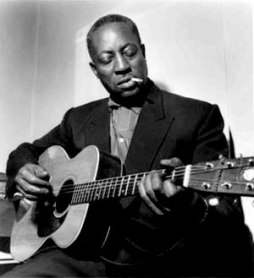

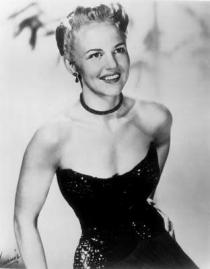




















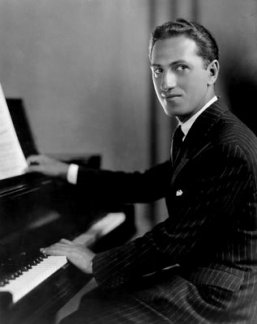

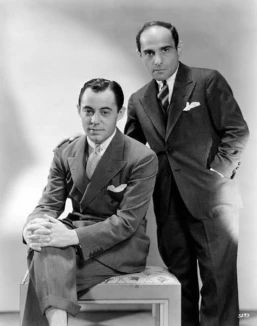

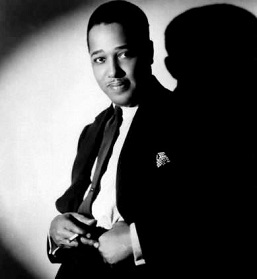


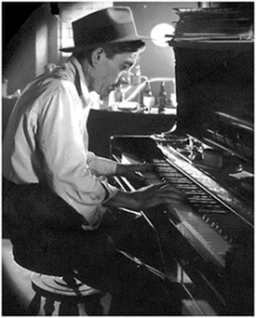
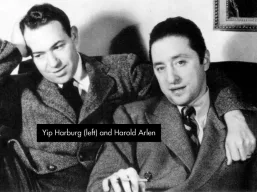
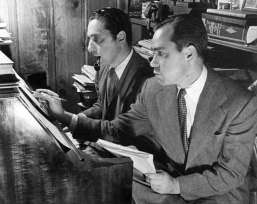



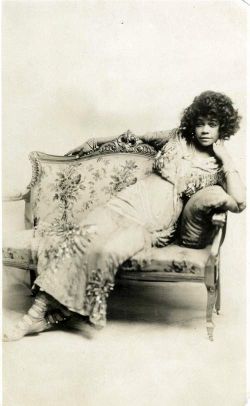





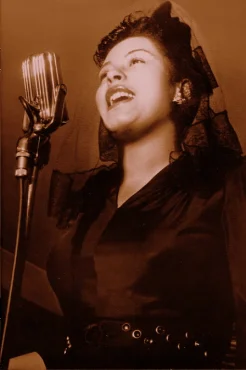




Jun 28, 2014 @ 06:07:14
Excellent!
LikeLiked by 1 person
Nov 17, 2014 @ 18:44:59
Terrific compilation! What a pleasure. Thanks for all your work in assembling these great tunes, videos, posters, LP cover art, history.
LikeLiked by 1 person
Aug 09, 2015 @ 01:48:06
Really Love Cab Calloway ! <3 Where are the rest of the Songs Like "Kicking the Gong Around " Or Smoking Reefers ? :v
LikeLiked by 1 person
Aug 10, 2015 @ 11:59:43
Hi Amy,
I presently have two Cab Calloway feature pages covering different, but overlapping, time frames. Recordings by Calloway are also included in a number of featured pages on individual songs.
See also recordings by Cab Calloway in the following feature pages:
LikeLike
Aug 10, 2015 @ 12:39:32
Calloway’s recording of “Kickin’ the Gong Around” (Harold Arlen, Ted Koehler), which is about smoking opium not weed, is in my Cab Calloway, part 1 feature page. Until you mentioned it, I was unaware of the song “Smoking Reefers” and Calloway’s recording of it. The recording was obviously made much later than the period I’ve focused on in my Calloway features.
Thanks for illuminating me. Perhaps I will add it to this page, my Reefer songs compilation, but only after I break the page up into two or more parts, because it’s pretty long already.
LikeLike
Jan 21, 2016 @ 00:16:23
nirevess, and Flora Bunda,
Thanks for the kind and generous comments. Sorry for the long delay in responding.
LikeLike
Jan 26, 2017 @ 18:40:10
This is awesome! Love music from this time and it’s so fun to hear the reefer songs! Thanks for doing this! You introduced me to some gems!
LikeLiked by 1 person
Jan 26, 2017 @ 19:07:46
You’re welcome!
LikeLike
Nov 10, 2017 @ 10:02:33
I grew up outside of Cincinnati. In the late 70’s the local album oriented rock station WEBN played a version of “When you’re a viper “.
It’s not the version by Fats Waller that is featured here. At the end of the song the singer says “when you’re a viper”. I sure would like to find this version as it would bring back a lot of memories.
Thanks,
Dean
LikeLiked by 1 person
Nov 14, 2017 @ 20:43:45
Hi Dean,
Welcome to Songbook. Any idea whether the
songrecording was old or new in the late 70’s? Have you checked out some of the recordings of the song listed at SecondHandSongs.com, here: https://secondhandsongs.com/work/97483/versions#nav-entity? If not, then I hope that helps. : )Regards,
doc
LikeLike
Nov 15, 2017 @ 07:04:15
Doc,
It was an old probably 1930 or 20’s
Version. I’ll check out your suggestions.
Thanks,
Dean
LikeLiked by 1 person
Nov 15, 2017 @ 08:41:49
Dean,
You’re welcome. I’m not familiar with many recordings of this song. While a list of recorded versions at SecondHandSongs might be helpful, it shouldn’t be considered comprehensive. When I’m composing a feature page on a single song, I typically look for early recordings at Google videos, beginning with a search on the title and either the copyright date or publish date, if known, or the date of the earliest recording listed at various more or less reliable places. In this case, alternate titles would need to be considered as well. I’ll let you know if I happen across any recordings that fit your description.
~doc
P.S. In listening to several early recordings of “You’se a Viper” or “If You’re a Viper” this morning, I was struck by similarities to the song “That’s What I Like About the South” (Andy Razaf), which was evidently first recorded about the same time, perhaps a year later. I haven’t yet searched for the copyright dates of either song.
LikeLike
Nov 15, 2017 @ 09:31:21
Doc,
Thank you for your quick reply.
The search is on! I look forward to hearing what you may find. I’ll post what I find.
Stay Well,
Dean
LikeLiked by 1 person